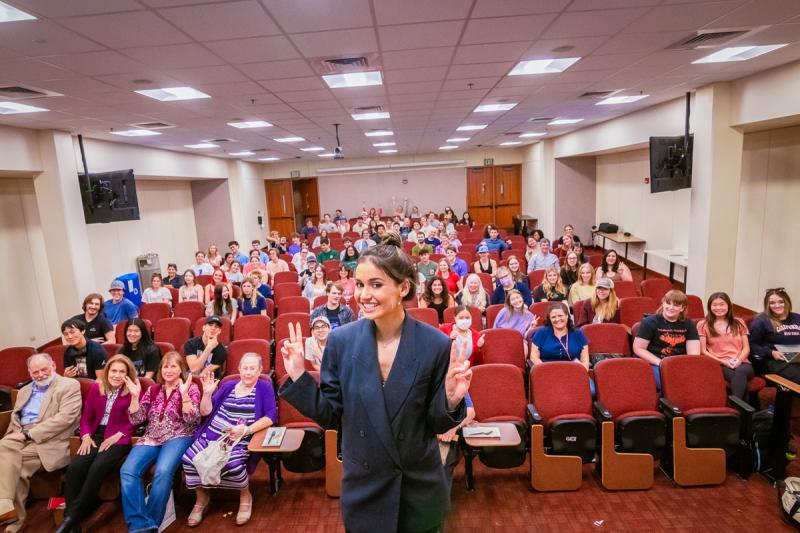Youth Voices Profile: Sophia Kianni

DU recently hosted the Youth Voices Lecture Series on Climate, giving climate activists from around the U.S. an opportunity to discuss issues regarding environmental degradation and the unequal impact these issues have on marginalized populations.
Sophia Kianni, an Iranian-American and one of the many youth activist speakers in attendance, shared her personal story of how she became involved with climate activism. When she was 12 years old, Sophia noticed how awful the air pollution was when visiting Iran. She could no longer enjoy the beauty of the star-lit sky or point out each constellation with her father. She questioned how the natural beauty of the Earth that is enjoyed by so many could be masked by the actions of so few (namely oil and gas corporations).
Quickly, she realized that the people within her community were unaware of these issues. Kianni recalls, “My relatives didn't know anything about climate change because there was a lack of resources translated into Farci….” It made her question how many other languages were omitted from this crucial conversation. In fact, 75% of the world’s population does not speak English, and 80% of the world’s scientific literature is only available in English. This propelled her to begin climate campaigning; “groups like Fridays for Future, and Zero Hour, some of the largest grassroots organizations in the world, have really been critical for mobilizing mass power and momentum for generating news headlines,” said Kianni.
Kianni was determined to make a change within her community. It all began with a viral TikTok video, resulting in thousands of community members volunteering to help kickstart her nonprofit, Climate Cardinals. She asked her good friend, who already had a popular following on Tik Tok, if she could help make a video to promote her new organization. Over nine thousand student-led volunteers now run the nonprofit from across 40 different countries and strive to make climate resources more accessible to people who don’t speak English. Through Climate Cardinals, “not only could students gain community service hours,” said Kianni laughing to herself, “but they could also play a role in promoting climate education and literacy more importantly.”
Climate Cardinals has successfully translated 1 million words of climate information into 100+ different languages. With recent advancements in technology, they have begun piloting AI technology to increase the efficiency of this translation process.
According to Kianni, one of the issues people fail to understand is that climate change disproportionately impacts low-income and marginalized communities. This is often referred to as environmental racism, something Kianni and her nonprofit are trying to address head-on. For example, of those displaced by acute climate effects, 80% are women. Additionally, oil and gas pipelines are more likely to be built in Black and Brown communities than in White communities.
Not only do such outcomes negatively impact the health and well-being of communities, but governments are also failing to incorporate the perspectives and suggestions that these populations have regarding climate policy.
With this lack of marginalized community involvement coupled with the growing fear people have towards the future of the planet, eco-anxiety has emerged. This paralysis of action is brought on by fear and refers to people’s hesitance to make a change. It is usually exacerbated by the propaganda distributed by oil and gas companies.
Kianni recognizes these issues and calls upon Gen Z to start making a change. Even if such change stems from small actions such as bringing reusable bags to the grocery store or buying second-hand clothes, how each person champions progress will collectively impact the environment.


